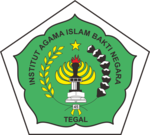Manajemen Kepala RA di Bidang SDM Guru dalam Peningkatan Mutu Pendidikan (Studi Kasus di RA Nurul Hidayah Jembayat Kecamatan Margasari)
DOI:
https://doi.org/10.62490/latahzan.v12i1.394Keywords:
Management, Teacher HR, Education QualityAbstract
This study examines the RA Head Management in the field of teacher HR. It is against this background that management owned by RA is not very good in the field of Teacher HR. This causes a lack of public trust in education held at RA Nurul Hidayah Jembayat Margasari. The purpose of this study was to determine the profile of coconut management in RA Nurul Hidayah Jembayat Margasari and provide recommendations for the formula for the Management of RA Heads in the field of Human Resources in Improving the quality of education in RA Nurul Hidayah Jembayat Margasari.
Research methods using a qualitative approach, data analysis techniques using data reduction, with the method of taking data through observation, interviews and documentation. The data obtained are presented in a qualitative form and then conclusions are drawn as well as checking the validity of the data, extension of observation and perseverance.
The results of this study are that RA Nurul Hidayah Jembayat Margasari has the goal of helping to lay the foundation towards the development of attitudes, knowledge, skills and creativity needed by students in adjusting to the environment. Its existence is used as a forum and trust by the local community to educate the children of the nation so that these children can develop in accordance with the educational goals to be achieved by RA Nurul Hidayah Jembayat Margasari. The strategy efforts undertaken are divided into 3 types, namely strategies in the field of human resources, strategies in the field of management and strategies in the field of facilities and infrastructure. Principal management maximizes human resources through training and education for teachers to produce abilities and increase knowledge in teaching students according to established standards.
References
Arikunto, Suharsimi & Syafrudin, Cepi Abdul Jabar. 2010. Pengantar Evaluasi Program. Jakarta : Alfabeta.
Arikunto, Suharsimi. 2005. Dasar-dasar Evaluasi Pendidikan. Jakarta: Bumi Aksara, Cetakan IV, Edisi Revisi.
Bachtiar, Yusuf. 2001. Kesiapan Implementasi Manajemen Pendidikan Berbasis Sekolah (MPBS) di kota dan kabupaten Bandung. Bandung: Rieke Cipta
Baharuddin. 2009. Pendidikan Dan Psikologi Perkembangan. Yogyakarta: ar-ruzz media.
Furchan, Arief. 1982. Pengantar Penelitian dalam Pendidikan. Surabaya: Usaha Nasional.
Hamalik, Oemar. 2007. Proses Belajar Mengajar. Jakarta: Bumi Aksara.
Hamalik, Oemar. 2007. Proses Belajar Mengajar.Jakarta : Bumi Aksara.
Kosasih, Ahmad. 2010. Manajemen Peningkatan Mutu Pendidikan (Strategi Peningkatan Kinerja Lepala Sekolah Dan Guru melalui MKKS dan MGMP dalam pembelajaran pada SMP Negeri di kabupaten Garut. Surakarta: UMS
Kuat Ismanto. 2009. Manajemen Syariah, (Yogyakarta: Pustaka Pelajar.
Maksum, A. & Ruhendi, L.Y.2004. Paradigma Pendidikan Universal. Yogyakarta: IRCisoD.
Sugiyono. 2006. Metodologi Penelitian Kuantitatif, Kualitatif dan R& D.Bandung: Alfabeta.
Suharsimi, Arikunto. 2006 Prosedur Penelitian: Suatu Pendekatan Praktik.Jakarta: Rineka Cipta.
Suparlan. 2008. Membangun Sekolah Efektif. Yogyakarta: Hikayat Publishing,
Terry, George. 2005. Dasar-Dasar Manajemen. Jakarta: PT, Bumi Aksara.
Ulum, Mokhamad Miptakhul. "Relasi Pendidikan Akhlak dan Ilmu Laduni Menurut Im?m Al-Gaz?li." HIKMATUNA 2.1 (2016).
Zuriah, Nurul. 2006. Metodologi Penelitian Sosial Dan Pendidikan Teori Dan Aplikasi. Jakarta: Bumi Aksara.
Zuriah, Nurul. 2006. Metodologi Penelitian Sosial dan Pendidikan:Teori dan Aplikasi. Jakarta:Bumi Aksara.
Downloads
Published
How to Cite
Issue
Section
License
Copyright (c) 2020 La-Tahzan: Jurnal Pendidikan Islam

This work is licensed under a Creative Commons Attribution-ShareAlike 4.0 International License.
The copyright of the received article shall be assigned to the journal as the publisher of the journal. The intended copyright includes the right to publish the article in various forms (including reprints). The journal maintains the publishing rights to the published articles.
In line with the license, authors and any users (readers and other researchers) are allowed to share and adapt the material. In addition, the material must be given appropriate credit, provided with a link to the license, and indicated if changes were made. If authors remix, transform, or build upon the material, authors must distribute their contributions under the same license as the original.
















